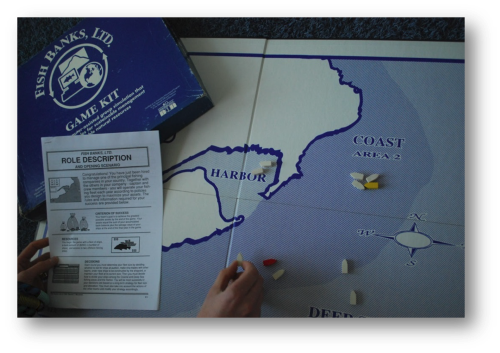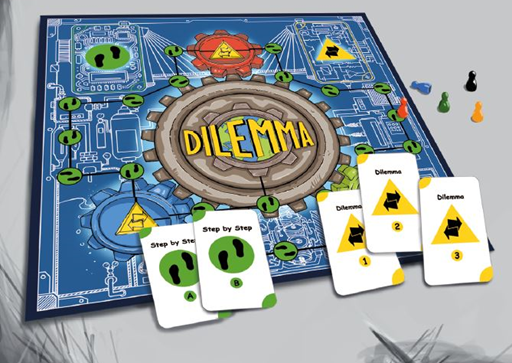Dilemma
Dilemma is a quiz-like board game for 3-5 players developed by Jon-Erik Dahlin. The game is a fun way to learn about sustainable development. It also encourages participants to reflect, to debate and to think critically about sustainability dilemmas, which often have both moral and ethical dimensions. The game includes knowledge questions and dilemmas.
The knowledge questions are written on cards together with clues, and they offer a learning activity in themselves as well as a knowledge check-up before the written test. There is one deck with ‘easy questions’ and one with ‘difficult questions’.
The dilemma challenges are also written on cards, together with two opposing viewpoints for each dilemma. Players should put forward arguments for one of those viewpoints (and they may very well have to argue for a viewpoint which they do not actually agree with!), and another player should put forward arguments for the opposing viewpoint. There are three decks of dilemma-cards: (1) on sustainable development as a concept, and various perspectives on sustainability; (2) on various sustainability challenges and opposing views on how to deal with those; (3) on the relationship between sustainable development and technology/engineering. It is possible to play the Dilemma game with the same student group at up to three separate occasions, where a new deck with dilemma cards is chosen each time.
Dilemma was developed to be used in classroom exercises or seminars, as a fun and interactive learning method for students. It is also a great tool for teachers, who can use the ‘dilemmas’ found in the box as a starting point for discussions, assignments or case studies. In the introduction course module, the game is used in association with debriefings, assignments, and using the beneficial effects of repetivity:



